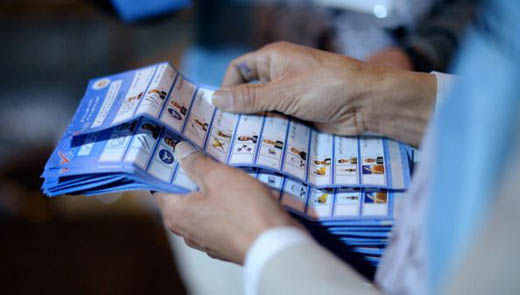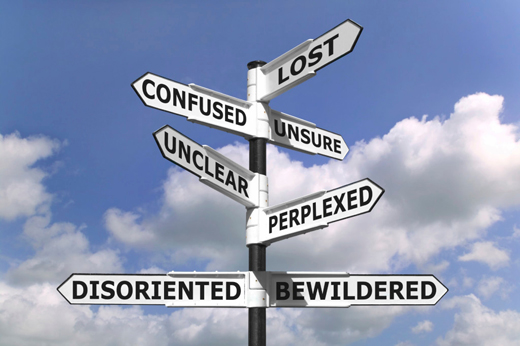
Nominations for political parties and candidates in Vancouver’s current civic election opened on Tuesday, September 4th and are set to close on Friday, September 14th. Vancouverites can reasonably expect to find 12 municipal parties on the random ballot when they cast their vote next month, comprising at least 75 candidates for City Council, 20+ candidates for Vancouver School Board, and an equal number at Vancouver Park Board.
For journalists, the punditry and anyone who gives a good galldarn about democracy, one cannot help but feel a sense of despair about the coming Vancouver civic election: too many civic parties without any public profile whatsoever, too few incumbents running for office (only three in Vancouver: Adriane Carr, Melissa De Genova and Heather Deal), too many candidates who are utterly unknown to the electorate, the civic election occurring almost a month earlier than the usual third Saturday of November — giving voters too little time to get know the candidates, a situation exacerbated by the new electoral finance rules brought in by the Horgan provincial government, which will result in virtually no monies available to purchase billboard or newspaper ads, or run radio or television ads singing the praises of any particular given civic party, and with the very real prospect that Vision Vancouver could be wiped off the electoral map come Saturday, October 20th, predicting the outcome of the current Vancouver civic election is a mug’s came. From an online GlobalNews story …
Retiring Vancouver City Councillor George Affleck says campaign finance restrictions, combined with the fact that the elections are taking place earlier in the year, could mean fewer voters will take part in the October 20th civic elections.
“Those two things, I think, are going to have a huge impact on turnout,” Affleck wrote in a Facebook post urging Premier John Horgan “to look at ensuring people head to the polls and vote.”
Affleck will introduce a motion at the upcoming September 18th meeting of Council requesting that the province “immediately consider enhancing the existing communications budgets for Elections BC, various regional districts and UBCM (Union of BC Municipalities) to help raise public awareness of the imminent 2018 local government elections in British Columbia on an emergency basis.”
“I think people don’t see the election coming, and you also see a lot less money spent by parties … so in general you won’t see much marketing about an election coming, and I think people will be potentially not aware as they have [been] in the past.”
Too little, too late? Will the Horgan government listen, or even care?

No one knows a darn thing about how the October 20th election will turn out, least of all Quito Maggi’s Mainstreet Research polling firm, who right up until the last minute in the 2015 federal election was predicting an overwhelming Stephen Harper majority government. Locally, in their latest poll, Mainstreet Research surveyed 862 Vancouver residents about the coming civic election. With a full 41.8% of those surveyed undecided as to whom they will cast their ballot for Mayor, the results of the survey aren’t worth the paper they’re printed on, never mind your time or consideration.
Respected civic affairs reporter Frances Bula, in a story published in The Globe and Mail this past Friday, writes …
“The province’s already dismal rates of voter turnout for civic elections could plunge even lower in this fall’s B.C. election, the result of several factors that have experienced political observers worrying the vote could be decided on single issues rather than solutions to severe problems.
Low voter participation could mean councillors and mayors are elected by small fractions of a city’s total population — a trend that could favour either incumbents or candidates who appeal to a small but determined group of motivated voters angry about one particular problem.”
Later in the Friday Globe story, Ms. Bula records pollster Mario Canseco, whose company Research Co. has been tracking voter opinions in some local cities, as saying he’s noticing a much larger proportion of undecided voters this year — around 30 per cent to 35 per cent, compared with the 15 per cent or 20 per cent he usually sees in federal or provincial elections.
As Ms. Bula writes at the end of her Globe and Mail story, “In Vancouver, for example, only three of the current 11-member council are planning to run again for the same position.”
In an informal conversation VanRamblings had at a local Starbucks this past Thursday with the eminence gris of civic affairs reporting, the affable and concerned Ms. Bula also expressed a dismay shared by all those who care about the state of our civic democracy, and how we will be governed in Vancouver going forward …
“With at least eight new members of Council, it’s going to take them a year and a half to find the bathrooms at City Hall,” Ms. Bula opined to us.
The wholesale change of government at City Hall that we are about to witness in Vancouver may bode well for voters in the long term, but in the short term it’s going to be sheer hell at City Hall these next couple of years.
Civic politics in Vancouver these past 10 years has been so easy on the Vancouver electorate, who were offered a clear choice (and an alphabetical ballot) when they went to the polls: the bike sharing, bike lane building Greenest City Action Plan endorsing, anti-racist and diversity advocating, reconciliation with our indigenous people’s promoting, LGBTQ2+ / gender variant community championing Vision Vancouver vs those dastardly NPA ‘bah humbug, decrease the surplus population’ types, bent on firing city workers in the race to the bottom, cutting a swath of social justice programmes and City Hall advisory committees in order to ensure that their rich friends and supporters would pay much less in the way of property tax, while the rest of us suffered, and who could give a good galldarn about affordable housing (to which Vision Vancouver at least paid lip service).
Well, dear and trusting reader: those halcyon days are over.
The punditry and almost everyone plugged into the civic election scene believes that Vision Vancouver is going to be wiped off the electoral map, the attacks from both their left and right flanks unrelenting, the party doing itself no favours when announcing their latest “affordable housing” initiative this summer, the new 90-unit River District Housing Co-operative “geared toward families earning $82,000 to $110,000”, with “moderate” rents ranging from $2,050 to $2,750. All well and good for the West End condominium penthouse residing Mayor of our city. The “rest of us”, though, are left shaking our heads at a civic leader and a civic government that has lost touch with the electorate, and the people of Vancouver.

Restore Vancouver, Reclaim Vancouver, Yes Vancouver, the Vancouver Non-Partisan Association, the Green Party of Vancouver, Vancouver First, Vision Vancouver, the Coalition Party (which will announce their seventh candidate for City Council, Ken Charko, on Wednesday), IDEA, OneCity Vancouver, Pro Vancouver and the Coalition of Progressive Electors — step right up folks, vote for us, we know you don’t know us, and thanks to John Horgan’s electoral finance reform legislation we don’t have any money to spend on brochures, or social media, newspaper, radio or television ads, we know you don’t have the first clue about who any of our candidates are, but trust us, vote for us, we have your best interests at heart. Honest, we do.